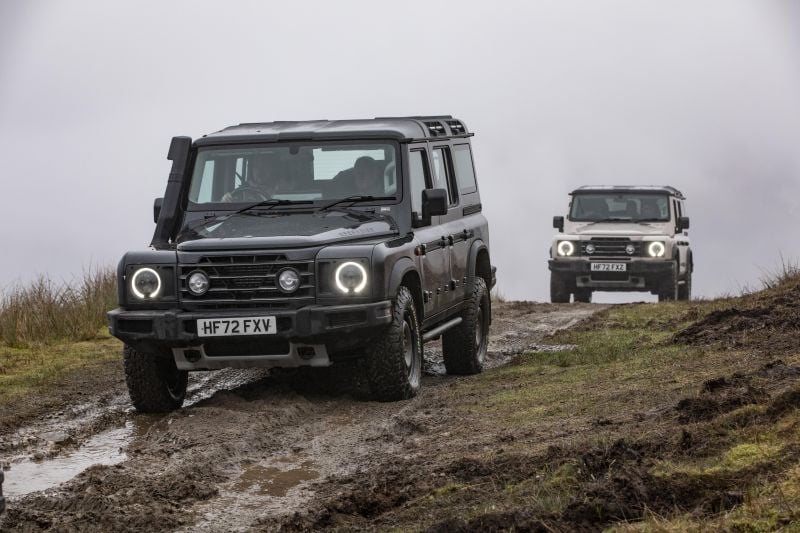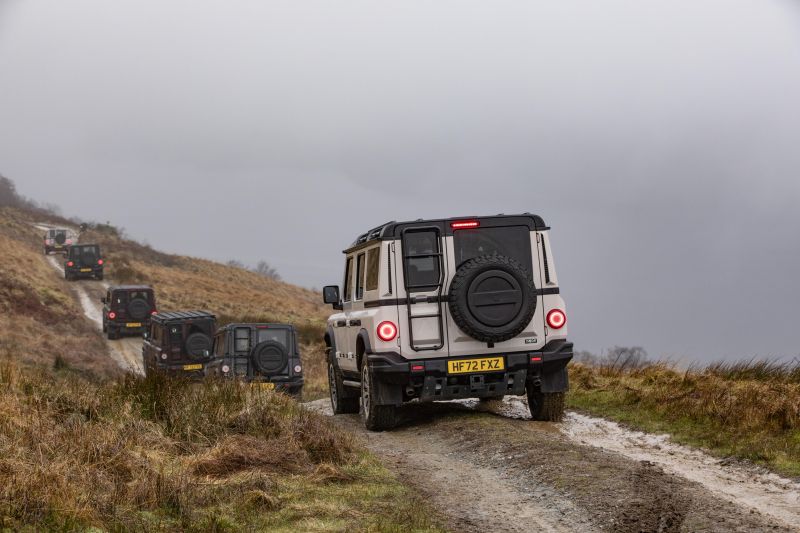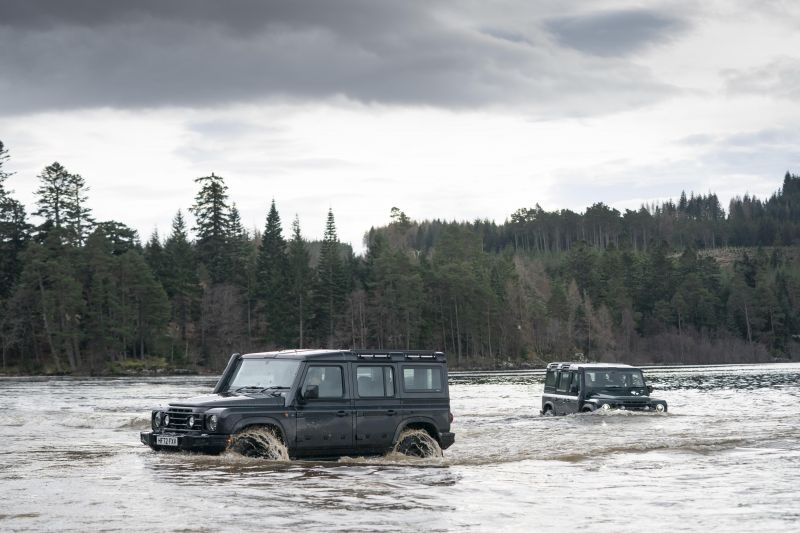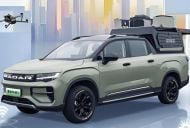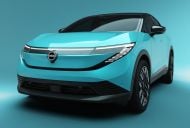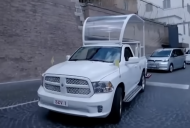Manufacturing giant Magna Steyr and Ineos Automotive will continue their partnership to create an electric vehicle with “world-class off-road capability”.
The battery-electric off-road SUV is expected to be sold under the Ineos name and will be the third model in Ineos Automotive’s line-up, following the Grenadier and its dual-cab pickup counterpart due this year.
The partnership remains tight-lipped on the model’s specifics, but it is expected to act as a ‘little brother’ to the Grenadier with the same boxy styling reminiscent of the long-running, first-generation Land Rover Defender.
Production of the vehicle will start in Graz, Austria in 2026. Magna says it will be responsible for both the development and manufacturing of the vehicle.
Development of the model will include an intense testing program on Austria’s Schockl mountain.
The relationship between Magna and Ineos Automotive began in 2018, when Magna provided engineering services for Ineos’ first 4X4, the Grenadier.
Magna has produced more than four million vehicles including models such as the BMW Z4, Jaguar I-Pace, Jaguar E-Pace, Mercedes G-Class, and the Fisker Ocean.
“Deepening our collaboration is a natural next step as we use the Grenadier as a springboard for our continued growth as a global automotive brand with our second model line,” said CEO Lynn Calder.
“As a leading global contract manufacturer with a strong infrastructure and a highly qualified workforce, Magna is ideally positioned to support automakers like Ineos Automotive in turning their mobility vision into reality,” said Roland Prettner, Interim President at Magna Complete Vehicles.
Ineos will expand its line-up to four vehicles by the end of the decade, which owner Sir Jim Ratcliffe told Autocar will come at a total cost of over £4 billion (AU$7.4 billion).
It was previously reported a hydrogen fuel-cell version of the Grenadier was in production.
“Electric cars are ideal for city centres and short journeys. But hydrogen is much better for longer journeys and heavier loads,” said Sir Ratcliffe, suggesting the possibility the company may be developing an EV and hydrogen fuel-cell vehicle concurrently.
Sir Jim Ratcliffe had previously said he believed “hydrogen is the fuel of the future.”
Considering Ineos Automotive’s parent company makes 400,000 tonnes of “low carbon” hydrogen and is Europe’s largest existing operator of electrolysis, there is an element of self-interest in developing an impressive fuel-cell 4×4.
For now, Mr Prettner said, “This new electric vehicle adds nicely to our line-up in Austria and showcases our flexibility in producing a range of vehicles from ICE-based to fully electric.”
Australia is the third-largest market for Ineos in total, and its local arm is a factory-backed operation rather than an independent licensed distributor.
Ineos’ Australian retail footprint will comprise 29 sites, part of a planned 200-strong global network in 50 countries by the end of 2022.

